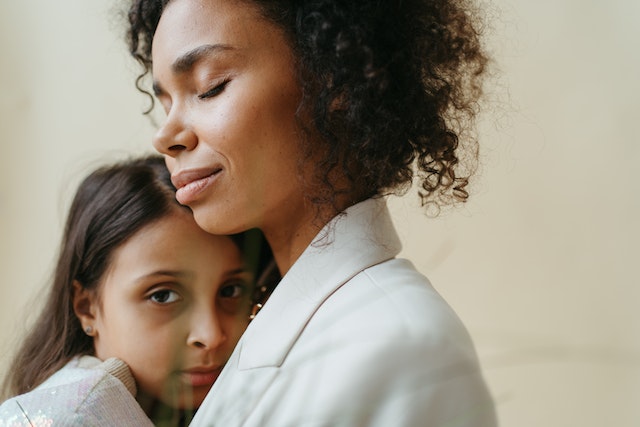 Nine months into the global pandemic, Riley Capuano told a grid of faces on a Zoom screen why she and her peers needed schools to reopen.
Nine months into the global pandemic, Riley Capuano told a grid of faces on a Zoom screen why she and her peers needed schools to reopen.
“I’ve never seen this many students struggling with mental health,” the Los Altos High School junior said during a virtual school board meeting on Dec. 14. “Being cooped up in your home all day is really, really tough. I’m a pretty happy kid usually but I’ve never struggled more than I have this year because of being fully online.”
Capuano is one of a vast many local teenagers who have been feeling this way since their lives in the last year have mostly shrunk to the walls of their homes and computer screens.
Normally motivated students have become withdrawn and disconnected, and parents and health experts have been increasingly concerned about youth well-being as the coronavirus pandemic has kept most local schools closed for months longer than anyone anticipated. Desperate parents have called into school board meetings, describing children of all ages who are listless and disengaged.
Locally, Santa Clara County’s suicide prevention hotline saw a significant increase in calls from young people last year, particularly from those between 15 and 25 years old. In 2020, there were about 34,500 calls from youth to the hotline, compared to about 27,000 in 2019 — a 28% rise, according to data provided by the county.
“At the beginning of the pandemic we could still tell them, ‘Hang in there. Eventually we will get out of this.’ … but now it seems endless,” Suicide and Crisis Services Manager Lan Nguyen, who is often on the other end of the line with teens calling into the hotline, said in January. “They say, ‘When is this going to go away? When will I be able to see my friends again? When can I go back to school? When is it going to end?’ And unfortunately we can’t answer that question for them.”
In San Mateo County, mental health nonprofit StarVista started new, affordable telehealth groups for middle and high school students struggling with social isolation. (To participate, call 650-355-8787 or email nancy.fang@star-vista.org.)
Children’s Health Council in Palo Alto, which has seen a 150% rise in calls during the pandemic, is already preparing for the next phase in teens’ emotional recovery. The slow reopening of schools and the relaxation of public health restrictions, while positive, won’t be a silver bullet for mental health challenges, Chief Clinical Officer Ramsey Khasho said. For some teenagers — especially those with social anxiety, who are on the spectrum or have been bullied at school — distance learning has been a respite.
“While we’re excited about the reentry, we’re also a little concerned that people are seeing this as a panacea for youth wellness,” Khasho said. “In fact we feel like there’s going to be a pretty jarring reentry and recalibration period that’s going to impact kids.”
The long-term effects of the pandemic on teens remain unknown, but experts’ best guess at this point is that it will linger in trauma-like symptoms, Khasho said.
He anticipates mental health providers will see upticks in requests as schools reopen, both from students adjusting to campuses that don’t function like they used to and from teachers and coaches who notice issues in kids they may have only interacted with online.
He encourages parents to reach out to CHC if they have any concerns. CHC requires no evaluation or commitment of the family to services.
To meet current and future demands, CHC is using a new $2.5 million grant from Jack Dorsey’s COVID-19 relief initiative to hire more providers (CHC has already hired seven new clinicians in the last seven months) and to bolster financial aid and free counseling services provided in communities like East Palo Alto.
“Hopefully, what this pandemic has taught us, because none of us have gotten out of this unscathed, is to really focus on our wellness and mental health,” Khasho said.
Excerpted from “Are the Kids Alright? Teens Speak Out About the Emotional Toll of a Year in Isolation” in Palo Alto Online. Read the full article to learn more about students’ struggles during the shutdown and the ways some of are finding to advocate for themselves and their peers.
Source: Palo Alto Online | Are the kids alright? Teens speak out about the emotional toll of a year in isolation, https://www.paloaltoonline.com/news/2021/03/12/are-the-kids-alright-teens-speak-out-about-the-emotional-toll-of-a-year-in-isolation | © 2020 Palo Alto Online
Stress and Crisis Resources
For immediate assistance, the following resources are available 24/7 unless otherwise noted:
- Dial 911 or go to your nearest emergency room or urgent care
- Crisis Text Line: Text BAY to 741741 (Anyone can send a message! Kids, teens, and adults)
- Star Vista’s Crisis Hotline: 650.579.0350
- National Suicide Prevention Hotline: (800) 273-8255
- Uplift Mobile Crisis Team: (408) 379-9085 / toll-free (877) 412-7474
- Alum Rock Mobile Crisis: 408.294.0579
- Lifeline Crisis Chat: crisischat.org
- OnYourMind Teen Chat (M-Th, 4:30-9:30 pm): onyourmind.net
A screening can help you determine if you or someone you care about should contact a mental health professional. Care Managers can arrange a free 30-minute Care Consultation so you can explore options with an expert. Call or email our Care Managers at 650.688.3625 or careteam@chconline.org to set up an initial Consultation appointment.





